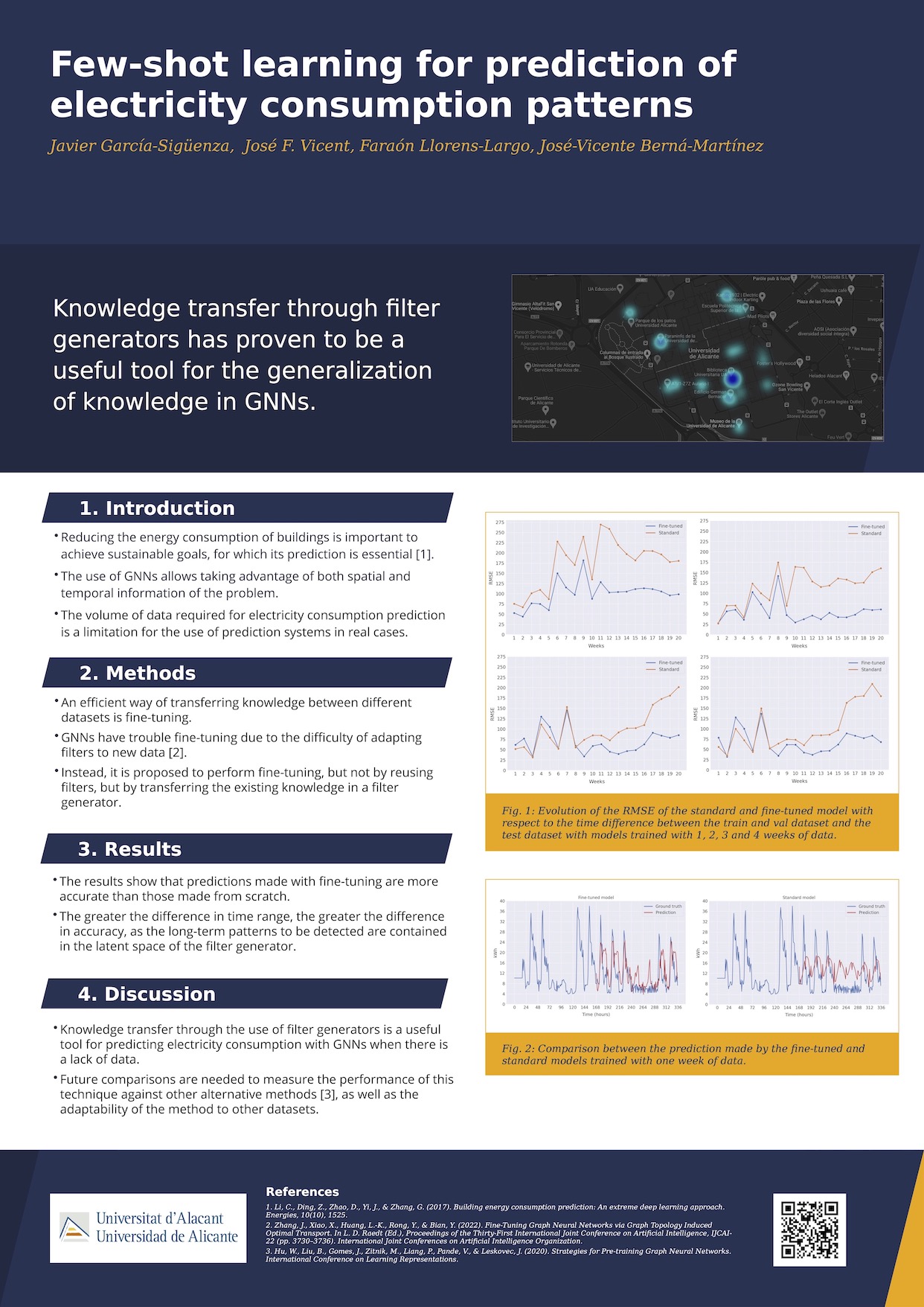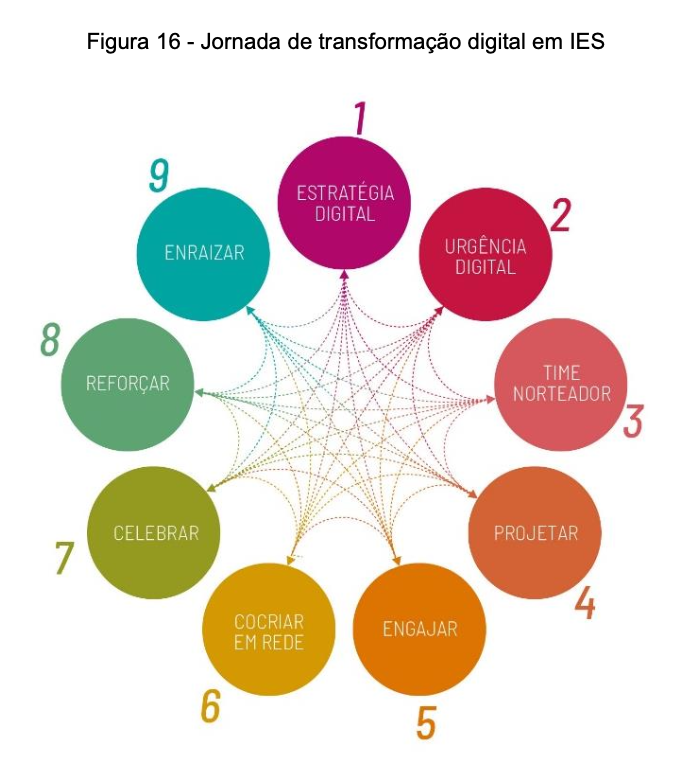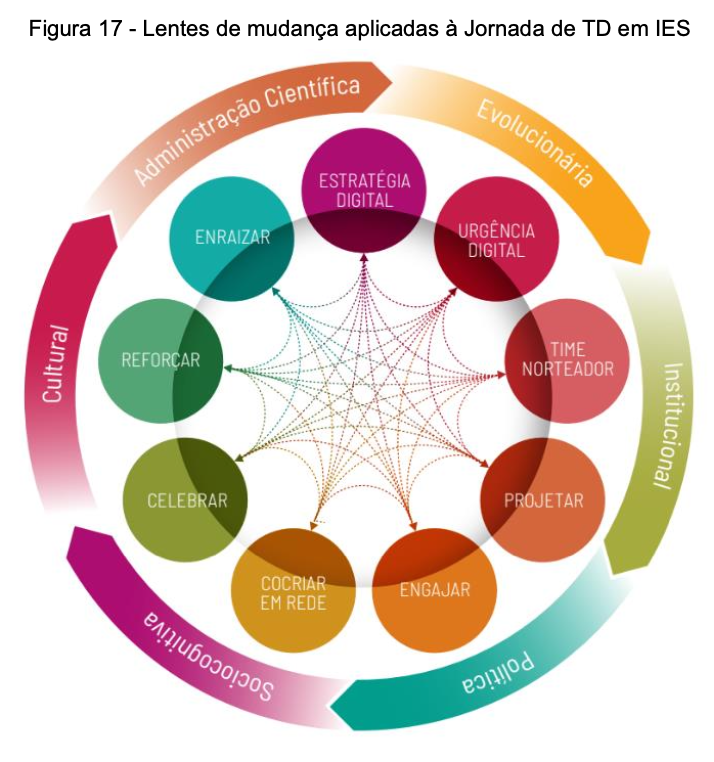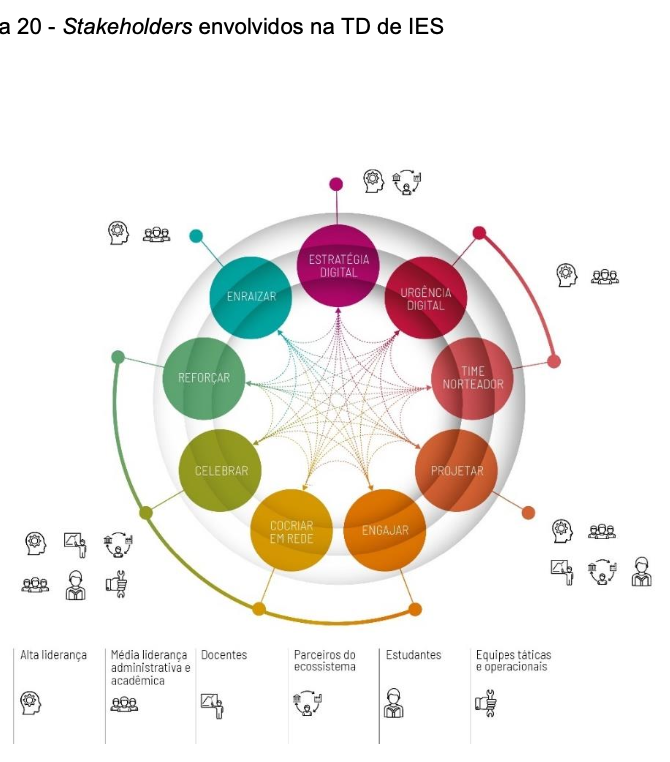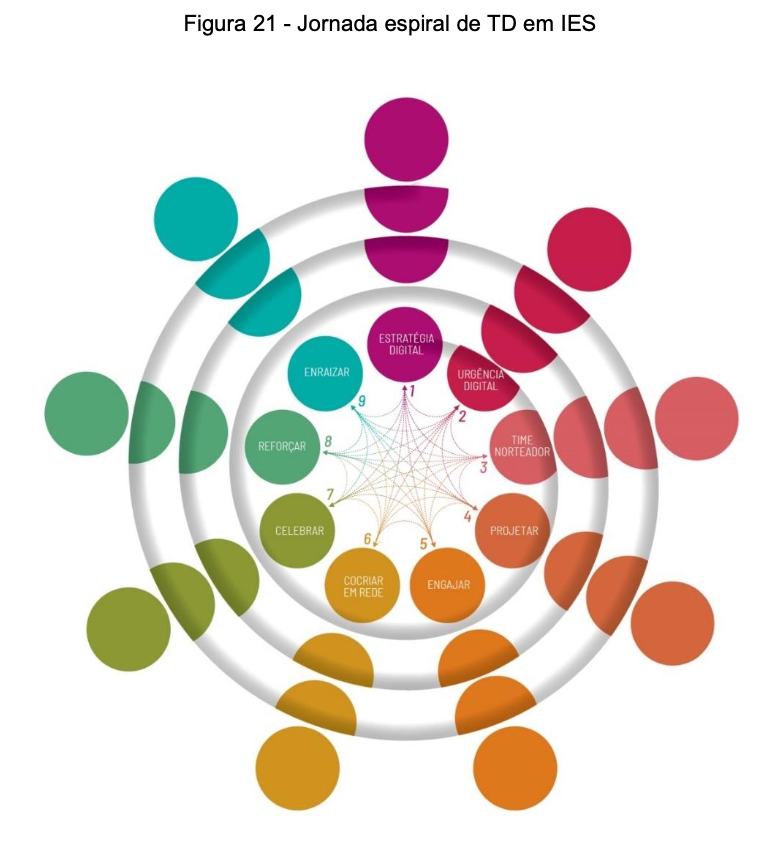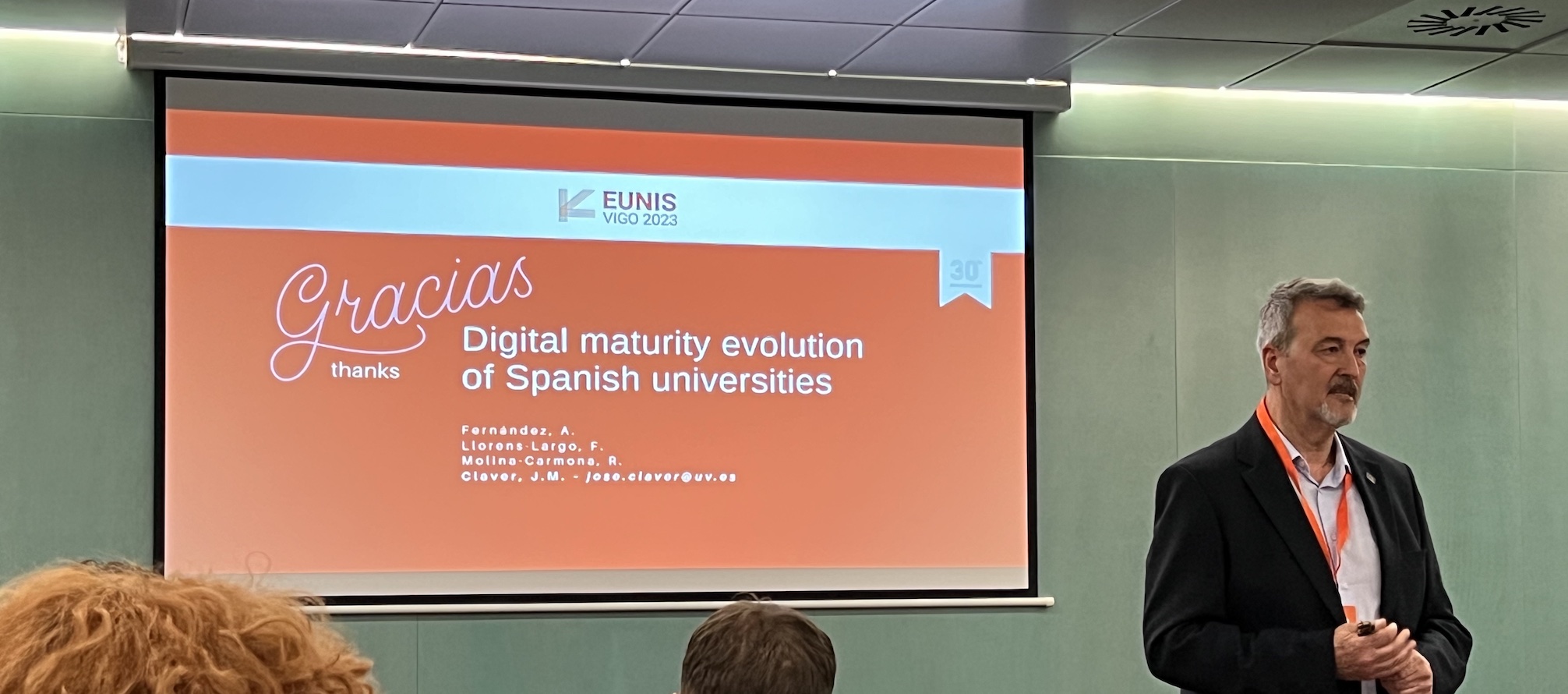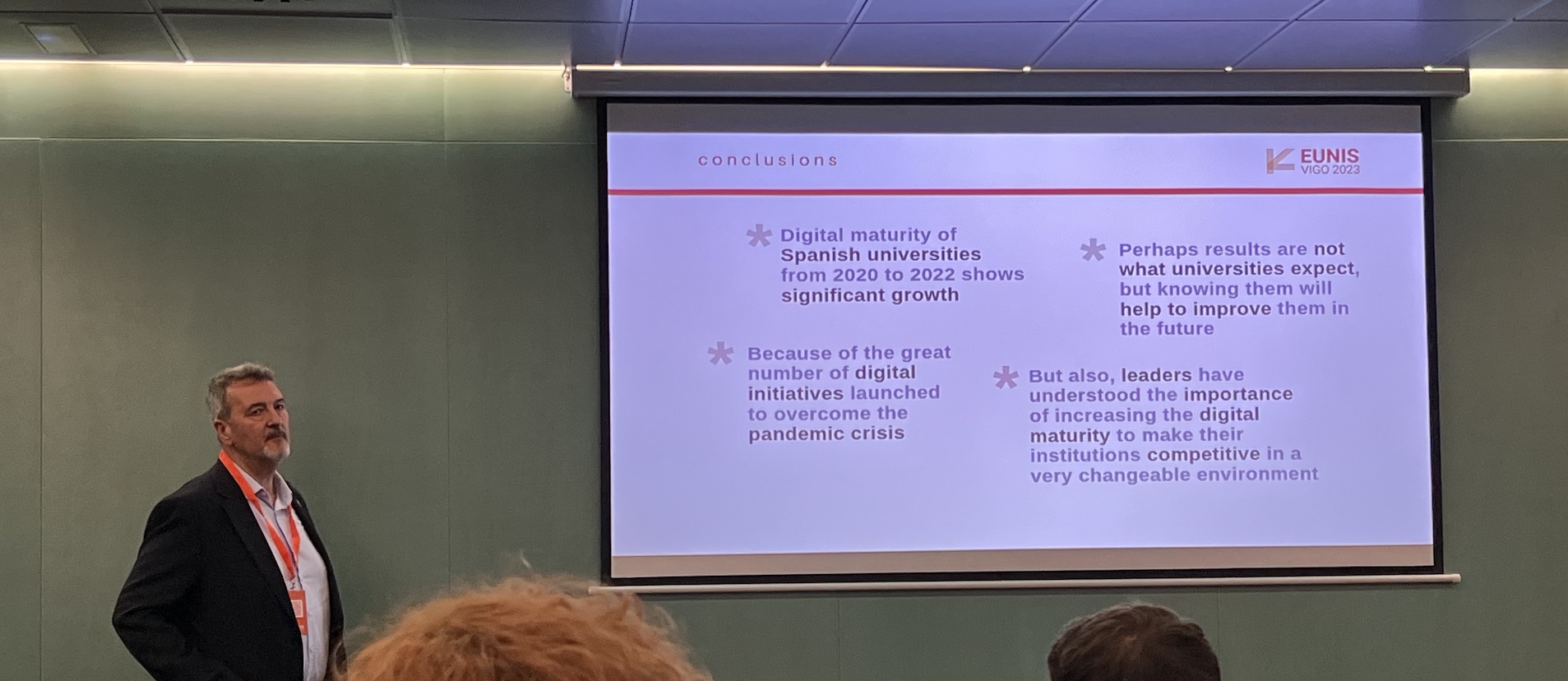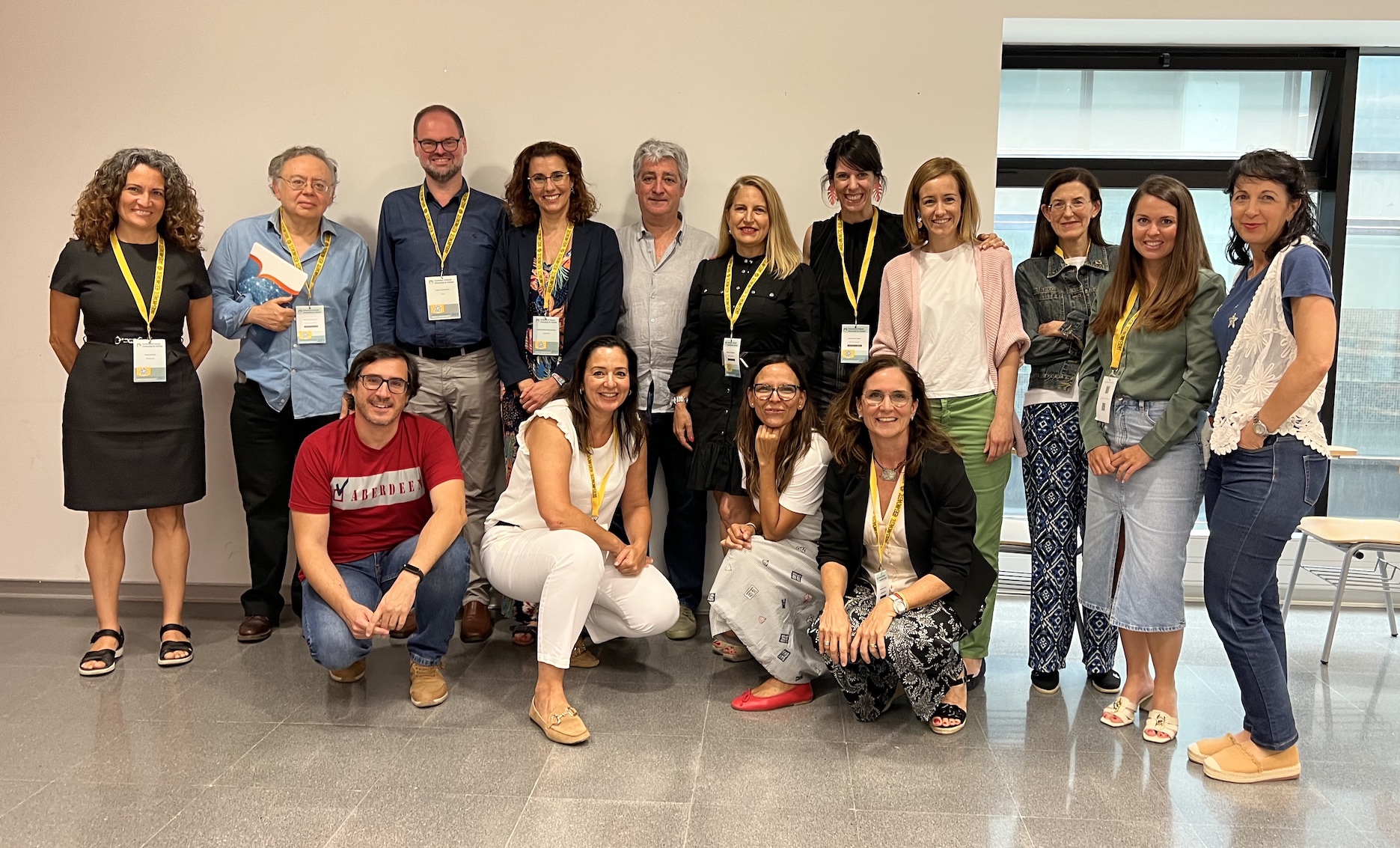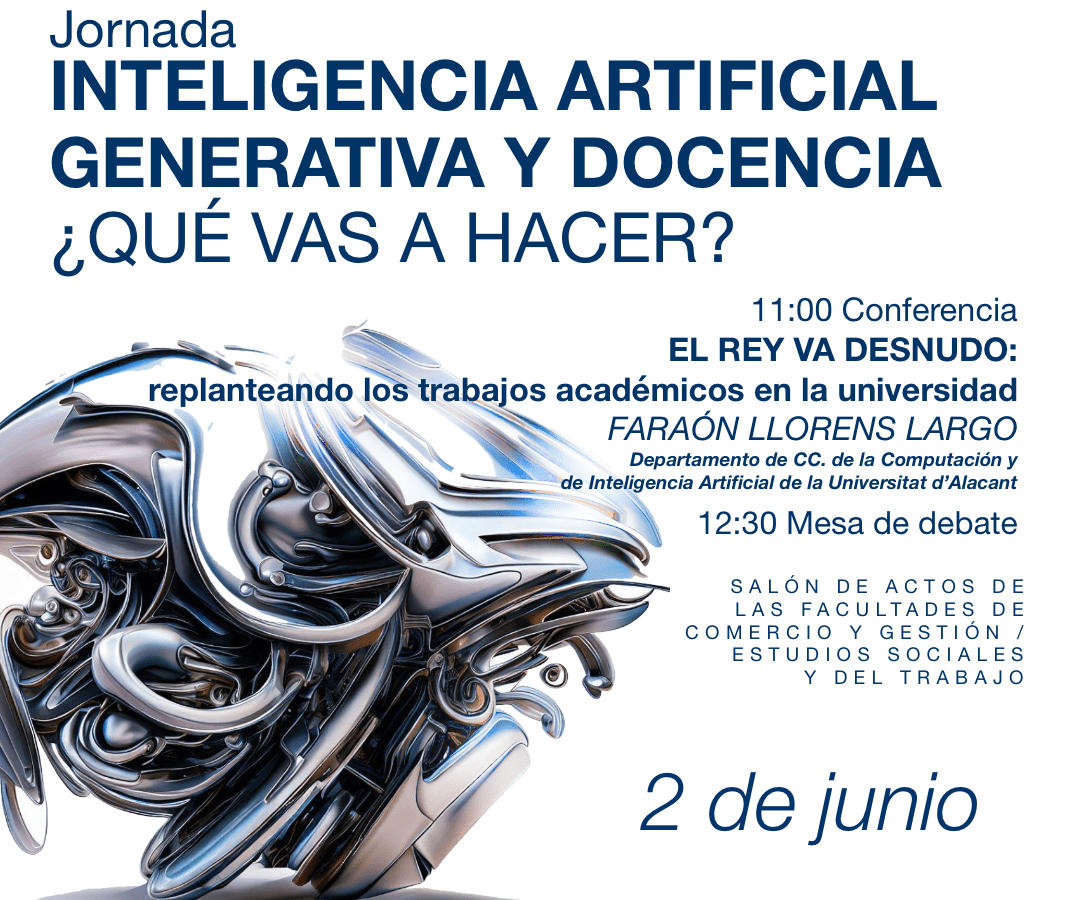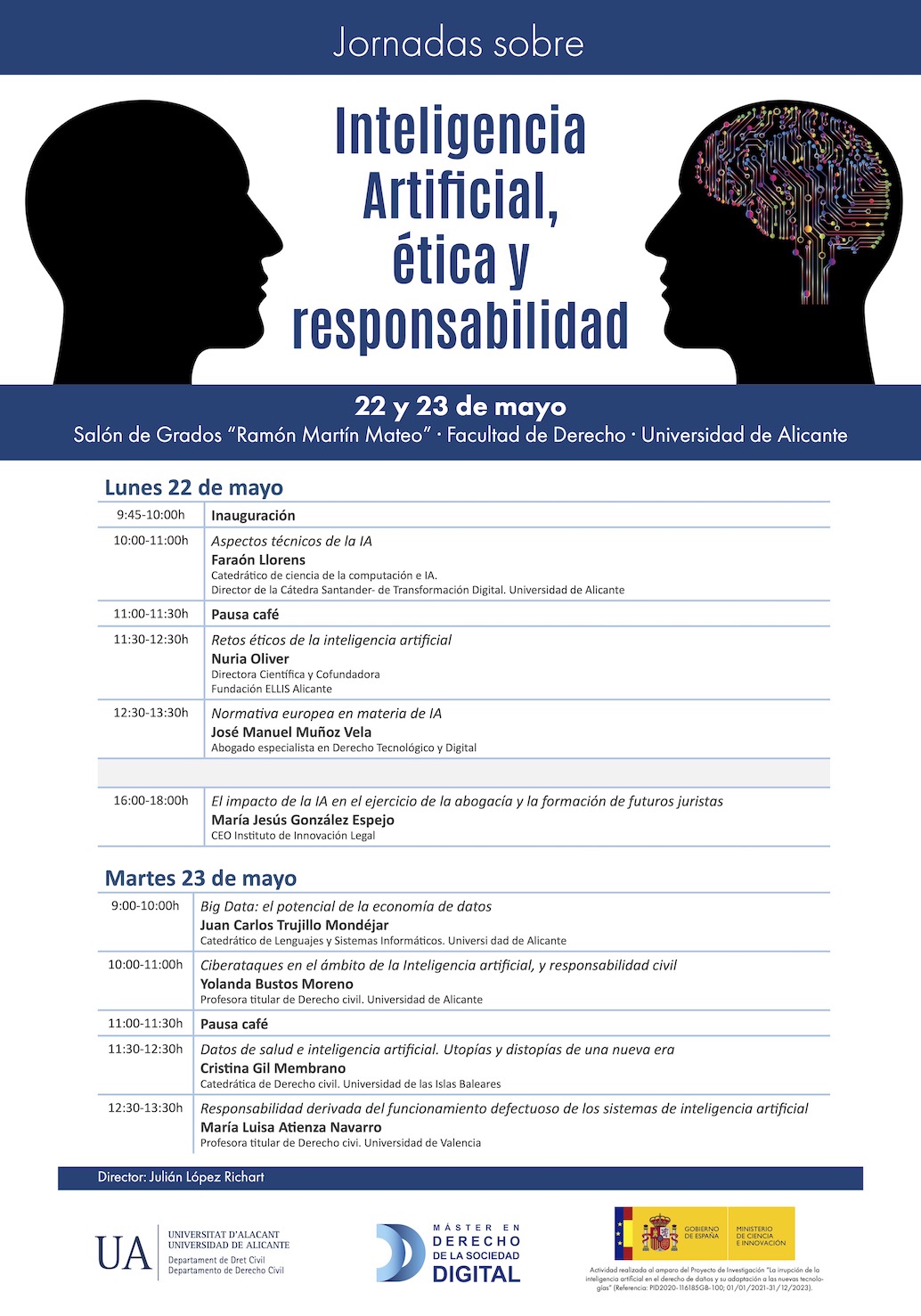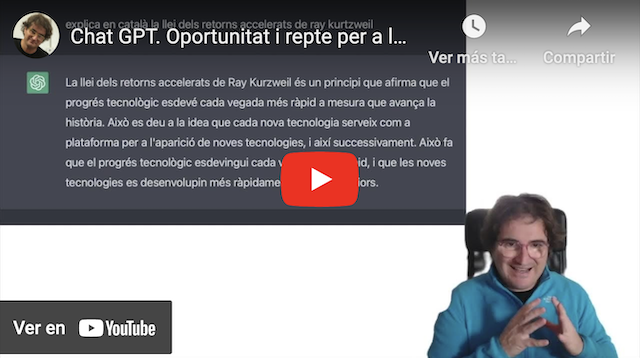Home » Actividades (Page 3)
Category Archives: Actividades
Few-Shot Learning for Prediction of Electricity Consumption Patterns
Few-Shot Learning for Prediction of Electricity Consumption Patterns
Javier García-Sigüenza, José F. Vicent, Faraón Llorens-Largo y José-Vicente Berná-Martínez
IbPRIA 2023: 11th Iberian Conference on Pattern Recognition and Image Analysis
Alicante, Spain. June 27-30, 2023
www.ibpria.org/2023
Publicación:
Pertusa, A., Gallego, A.J., Sánchez, J.A., Domingues, I. (eds) Pattern Recognition and Image Analysis. IbPRIA 2023. Lecture Notes in Computer Science, vol 14062. Springer, Cham.
https://doi.org/10.1007/978-3-031-36616-1_56
Abstract
Deep learning models have achieved extensive popularity due to their capability for providing an end-to-end solution. But, these models require training a massive amount of data, which is a challenging issue and not always enough data is available. In order to get around this problem, a few shot learning methods emerged with the aim to achieve a level of prediction based only on a small number of data. This paper proposes a few-shot learning approach that can successfully learn and predict the electricity consumption combining both the use of temporal and spatial data. Furthermore, to use all the available information, both spatial and temporal, models that combine the use of Recurrent Neural Networks and Graph Neural Networks have been used. Finally, with the objective of validate the approach, some experiments using electricity data of consumption of thirty-six buildings of the University of Alicante have been conducted.
Keywords
Few-shot learning, Graph neural networks, Electricity consumption, Pattern recognition
Metamodelo para implementação de transformação digital em IES
Metamodelo para implementação de transformação digital em IES:
jornada de transformação por meio de abordagem multiteórica de mudança organizacional
Adriana Veríssimo Karam Koleski
Programa De Pós-Graduação Em Engenharia E Gestão Do Conhecimento
Centro Tecnológico
Universidade Federal De Santa Catarina
Florianópolis, 2023
Hoy he formado parte de la banca examinadora de esta tesis doctoral.
Parabéns, Adriana!
ABSTRACT
The transformations experienced in the context of the networked society and the impact of digital technologies in all areas of society, have brought challenges and opportunities to organizations and, in particular, to higher education institutions (HEIs). The challenge of HEIs is twofold: at the same time that they have to transform as organizations to remain competitive, they need to reconfigure the education offered to their students. A process of planning, implementation and monitoring of strategies that enable their digital transformation (DT) is necessary. A transformation that is nourished by scientific knowledge and technologies structured by society and, at the same time, has a unique character for each HEI. This thesis addresses the question of how to implement DT in HEIs. It was was structured with the objective of conceiving a metamodel for DT implementation that respects the diversity, complexity and scope of the phenomenon in a HEI. The challenge was addressed using organizational change theories accompanied by concepts about DT in higher education, networked society, stakeholder theory and 21st century competencies. The nature of the research is technological and the paradigm adopted was pragmatism. As for the objectives it is exploratory and prescriptive, with the use of the mixed method and Design Science Research (DSR) as its methodological approach. The metamodel was conceived using design cycles sustained in the state of the art literature on the subject. The artifact is composed of four elements: digital transformation journey; theoretical lenses of change and digital transformation factors; stakeholders involved; spiraling journey. The results of evaluation of the metamodel were obtained by means of structured and semi-structured interviews with domain experts and strategic managers of HEIs and reveal that the metamodel is consistent, feasible and useful to guide the construction of DT models for HEIs.
Keywords: digital transformation; higher education; organizational change; metamodel.
Explainability techniques applied to road traffic forecasting using Graph Neural Network models
Explainability techniques applied to road traffic forecasting using Graph Neural Network models
Javier García-Sigüenza, Faraón Llorens-Largo, Leandro Tortosa and José F. Vicent
Information Sciences
Volume 645, October 2023, 119320
doi: doi.org/10.1016/j.ins.2023.119320
Available online 16 June 2023
(INS 119320)
https://www.sciencedirect.com/science/article/pii/S0020025523009052
Abstract
In recent years, several new Artificial Intelligence methods have been developed to make models more explainable and interpretable. The techniques essentially deal with the implementation of transparency and traceability of black box machine learning methods. Black box refers to the inability to explain why the model turns the input into the output, which may be problematic in some fields. To overcome this problem, our approach provides a comprehensive combination of predictive and explainability techniques. Firstly, we compared statistical regression, classic machine learning and deep learning models, reaching the conclusion that models based on deep learning exhibit greater accuracy. Of the great variety of deep learning models, the best predictive model in spatio-temporal traffic datasets was found to be the Adaptive Graph Convolutional Recurrent Network. Regarding the explainability technique, GraphMask shows a notably higher fidelity metric than other methods. The integration of both techniques was tested by means of experimental results, concluding that our approach improves deep learning model accuracy, making such models more transparent and interpretable. It allows us to discard up to 95% of the nodes used, facilitating an analysis of its behavior and thus improving the understanding of the model.
Keywords: Graph neural networks, deep learning, data analysis, explainability, traffic flow

Digital maturity evolution of Spanish universities
Digital maturity evolution of Spanish universities
Fernández, A., Llorens-Largo, F., Molina-Carmona, R. and Claver, J.M.
EUNIS 2023 Congress (www.eunis.org/eunis2023)
European Universities and the digital transformation: Challenges and opportunities ahead
14 – 16 June, 2023
Vigo 2023
European University Information Systems (www.eunis.org)
Universidad de Vigo (www.uvigo.gal)
Abstract
Higher Education Institutions (HEIs) are evolving towards a new university model called the digital university, which they will only reach by increasing their overall digital maturity. CRUE Spanish Universities (the Conference of Rectors of Spanish Universities) has used a new Digital Maturity Model for Universities (md4u) to analyze the digital maturity of more than 60 Spanish universities in the UNIVERSITIC 2020 and 2022 surveys. The results presented in this paper show that during this period Spanish universities have increased their overall digital maturity. This increase seems to be due to the COVID pandemic that we have suffered in this period, in which HEIs have launched a large number of digital initiatives to overcome this crisis. Additionally, HEIs leaders have understood the importance of increase digital maturity to make their institutions competitive in a fast changing digital environment.
Dota de vida a los trabajos académicos: aprendizaje-servicio (ApS)
Dota de vida a los trabajos académicos: aprendizaje-servicio (ApS)
Faraón Llorens, Rafael Molina y María Dolores de Juan
Taller REDES-INNOVAESTIC 2023
9 de junio de 9:30 h a 11:30 h
XXI Jornadas de Redes de Investigación en Docencia Universitaria (REDES 2023) y VI Workshop Internacional de Innovación en Enseñanza Superior y TIC (INNOVAESTIC 2023)
Nuevos formatos para el aprendizaje informal, ¿útiles para el formal?
El Aprendizaje-Servicio (ApS) es una práctica educativa de carácter experiencial que combina el desarrollo de competencias específicas de la titulación universitaria (aprendizaje) al mismo tiempo que los y las estudiantes tienen una experiencia directa de las necesidades del entorno social o ambiental y actúan con el objetivo de mejorarlo, en el marco de los Objetivos de Desarrollo Sostenible de Naciones Unidas (ODS). En este taller, tras ver dos ejemplos de sendas experiencias que llevan años desarrollándose en la Universidad de Alicante, los y las asistentes, reflexionarán sobre propuestas posibles para sus materias.
El Rey va desnudo. Replanteando los trabajos académicos en la universidad
El Rey va desnudo. Replanteando los trabajos académicos en la universidad
Faraón Llorens Largo
Jornada
Inteligencia artificial generativa y docencia. ¿Qué vas a hacer?
Universidad de Málaga
2 de junio de 2023
Grabación en directo (2:55:57):
Presentación:
Nota de prensa Universidad de Málaga:
https://www.uma.es/sala-de-prensa/noticias/el-uso-responsable-de-la-inteligencia-artificial-generativa-un-reto-para-el-sistema-educativo/
Resumen de la jornada generado con IA disponible en:
https://www.summarize.tech/www.youtube.com/watch?v=s640wpVk9w8
La Universidad Digital
Tema 2.5. La Universidad Digital
Responsable: Faraón Llorens Largo
25 de mayo. Horario: de 16:00 a 20:30 horas. On line.
Módulo 2. Financiación, personas y digitalización
Coordinadores: Juan Hernández Armenteros y José Antonio Pérez García
Diploma de experto en política y gestión universitarias (2ª edición)
Dirección: Manuel Parras Rosa
UNIA, UJA y CRUE
https://www.ujaen.es/estudios/oferta-academica/titulos-propios/diplomas-de-especializacion/diploma-de-experto-en-politica-y-gestion-universitarias
La IA en la educación superior
La IA en la educación superior
Faraón Llorens, Director Cátedra de Transformación Digital. Universidad de Alicante
Josep M. Vilalta, Secretario Ejecutivo. Asociación Catalana de Universidades Públicas (ACUP) y Director de la Global University Network for Innovation (GUNi)
Sílvia Sivera, Directora eLearning Innovation Center (eLinC). UOC (Universitat Oberta de Catalunya)
Moderador: Joaquín Rodríguez, Director corporativo de diseño, innovación y tecnología educativa. IESEK
EdTech Congress Barcelona (www.edtechcongressbcn.com)
Aprender en tiempos de Inteligencia Artificial
19 y 20 de abril 2023
Organiza: EduTechCluster (edutechcluster.org)
La popularización de aplicativos de inteligencia artificial, sobre todo de aquellos denominados generativos, impactará de manera decisiva sobre las dinámicas educativas y sobre la investigación. Muchas universidades han reaccionado instintivamente de manera atávica, intentando prohibir lo que resulta imposible proscribir, seguramente porque sus modalidades de evaluación son fácilmente resolubles mediante el uso de esas nuevas herramientas. La divulgación de la IA cambiará en profundidad lo que estudiamos, la manera en que lo hacemos, el tipo de competencias que promovemos, la manera en que lo valoramos y acreditamos y, también, las prioridades sobre las que deberá basarse la investigación: la incorporación de la inteligencia artificial como un complemento que pueda agilizar y enriquecer el trabajo de los científicos a condición de que se mantenga y refuerce la verificación humana de las respuestas proporcionadas por la inteligencia artificial, a condición de que se elaboren principios y normas de responsabilidad sobre su uso y a condición, también, de que se invierta en el desarrollo de una inteligencia artificial abierta e interoperable cuyos algoritmos puedan someterse a escrutinio e inspección.
En este panel hemos invitado a personas con un conocimiento profundo del mundo universitario y de la tecnología, incluida el de la IA, y con quienes queremos entender mejor el impacto de la Inteligencia Artificial en la Universidad, especialmente en sus procesos nucleares: la enseñanza, el aprendizaje, la investigación y la producción de conocimiento y su transferencia del conocimiento. Nos interesa abordar los retos y desafíos pero también las posibilidades que se abren.
Vídeo sesión (52:37):
Entrevista breve (1:30):
ChatGPT: Oportunidad y reto para la docencia. ¿Qué vas a hacer?
ChatGPT: Oportunidad y reto para la docencia. ¿Qué vas a hacer?
Marc Alier y Faraón Llorens
Curso Instituto de Ciencias de la Educación
Universidad de Alicante
Del 8 al 29 de marzo de 2023
https://web.ua.es/es/ice/formacion/2023/2023/chatgpt-oportunidad-y-reto-para-la-docencia.-que-vas-a-hacer.html
En este curso se analizará ChatGPT, una herramienta de IA generativa de texto introducida a finales de 2022, y sus implicaciones para la docencia universitaria. Se reflexionará sobre las oportunidades y retos que esta herramienta supone para la productividad, automatización de tareas y evaluación de los estudiantes.
